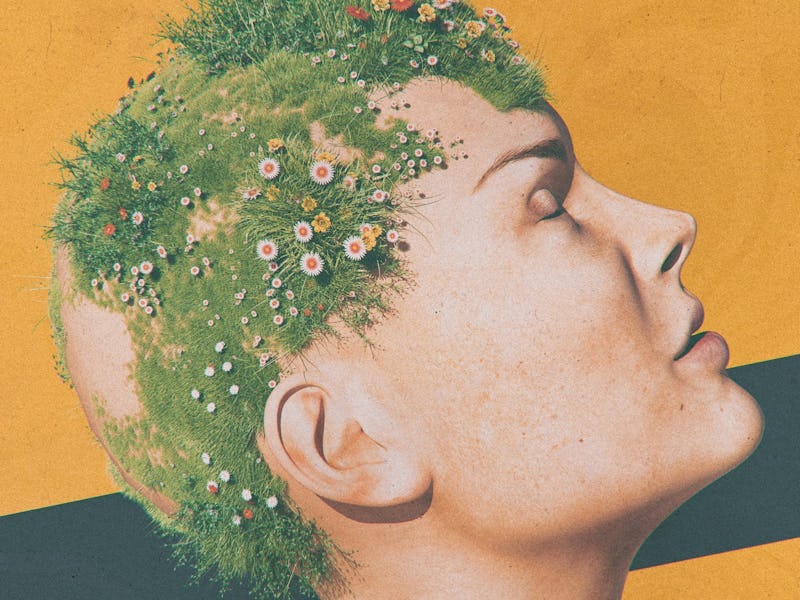Neurotechnology Could End Mental Illness for Good, But Should It?
We're victims to fickle minds, but what if we weren't?

In many ways, today’s humans are superior to their ancestors. We live longer; we have more leisure time. We can get halfway around the globe in a day. We can instantaneously find the answer to most any question. And so forth. Despite all this good stuff, we’re still victims to fickle minds — still victims to depression, anxiety, and other mental illnesses.
Some futurists hold out hope that neurotechnology will rid us of these beasts. Already, we can leverage artificial intelligence to diagnose and predict psychosis and depression.
Max More, who’s CEO of Alcor Life Extension Foundation, and who — more importantly — defined modern transhumanism, thinks the deeper answers may be found in neurotechnology. He tells Inverse why he’s waiting for that day.
How will technology change what it means to be human?
We’ve made really tiny progress in neurotechnology, which I think is going to be important in terms of how human nature changes in the future. There’s a limit to what we can do through meditation and self-discipline, and sort of changing our behavior, our fundamental drives, or increasing our emotional intelligence. Our brain is just not wired for us to understand what we’re feeling and how to change that. We have all these pathways going from the emotional centers to the cognitive centers, telling us, you know, ‘Big scary tiger! Run!’
But we don’t really have many pathways going back the other way to understand why we’re feeling depressed, or anxious, or angry. So we do a lot of stupid things because of that. I think one of the real, radical transformations for us will be when we actually can build those new pathways, and understand ourselves a lot better. In some ways, that’s more impressive than giving people super strong bodies, or bones that can’t be broken, and so on. I think the psychological changes will actually be quite profound.
It seems like uploading would also circumvent some of those embodied issues.
If you’re uploaded, then it’s going to be a lot easier to make changes, presumably. If you’ve got to deal with the biology, which has got a whole different machinery behind what’s in the neurons, it’s more difficult. So it’s reasonable to believe that uploads would be a lot easier to re-engineer, or engineer themselves. But that’s also something you have to be, obviously, very careful about, because there could be unintended consequences if you start tinkering with your basic drives and dispositions. You have to be a little careful. Hopefully, we can run simulations to know what we’re doing.
But I think the upside is a pretty big one, too. We see a lot of misery around the world, with people just depressed, and suicidal, and anxious, and hostile, and angry, and these are things that we really can’t fix very well. It just doesn’t work to say, ‘Don’t worry, be happy, put a smile on your face.’ That doesn’t help. We can’t just do that. We can’t just flick a switch. So I think that’s going to be a really big change in the future, as we have better neurotechnology — and then, I think a lot further out, uploading. I have no idea. I think that should be possible, but I don’t expect that for a long time to come.
Do you think that those negative emotions are also fundamental to what it means to be human?
Well, if they are, it’s not necessarily a part we want to keep. Mortality has always been part of what it is to be human. We can move beyond that. Again, not without some caution, because we don’t want to become emotionless. A lot of people always think of Mr. Spock, right? — they always think that transhumanists are thinking of some kind of emotionless logic machine. And that’s not at all the transhumanist view.
Just because we want to get rid of depression doesn’t mean we want to reduce the range of our emotions. In fact, we might have entirely new feelings and ways of looking at things. Just as an artist can perceive a lot more colors, and textures, and variations than an untrained eye can do, I think we’ll actually be a lot richer in our emotional range. But I think there will be some things we don’t want, like, you know, chronic anxiety and depression. It’s hard to see any benefits to those, really. That doesn’t mean you don’t want to be sad sometimes: You’ll probably want to keep that for good reasons.
This interview has been edited for clarity and brevity.